G-4: Enhancing Aging Intelligence: How Academic-Community Partnerships Support Interprofessional Education in Affordable Housing
NAB; ANCC; HUD; HUD RSC – 1 Credit Hour | Thursday, June 6th. 11:30 AM – 12:30 PM
Session Description:
The New Jersey Geriatric Workforce Enhancement Program (NJGWEP) which is part of Rowan-Virtua School of Osteopathic Medicine and the New Jersey Institute for Successful Aging (NJISA) collaborated with Rutgers University School of Nursing-Camden, Stockton University, NJ Housing and Mortgage Finance Agency, Fair Share Support Services’ Northgate II location, and three other affordable housing sites to create a community health initiative to evaluate residents’ health and biopsychosocial needs in underserved/disadvantaged populations.
An Interprofessional Education (IPE) curriculum delivered to faculty, students, and building staff from multiple health and social service disciplines prepares them to assess residents’ needs and develop person-centered plans of care to support aging in place using the Institute for Healthcare Improvement (IHI) 4Ms framework (What Matters, Medications, Mentation, Mobility). Using a Resident Health Risk Assessment (RHRA), 103 students from varied disciplines (i.e., nursing, social work, PT, OT) helped social service staff complete 255 RHRAs and developed 106 IPE case reviews and individual care plans. Most residents (81%) were flagged for at least 1 risk factor and 62% had 3 or more chronic conditions (63% female, mean age 71.1 years). Students demonstrated competence conducting geriatric assessments and developed person-centered plans of care that addressed “what matters” to the individual within the context of community-specific social determinants of health.
In this session, the panel will describe how enhancing the “aging intelligence” of building staff, faculty, and students led to changes in structure and process that influenced interactions with building residents. The discussion will highlight the development of core competencies rooted in the 4Ms framework to ensure a standardized approach to assessment that can be utilized regardless of setting or discipline, building a healthcare workforce able to recognize key issues critical to caring for an aging population. The importance of an interprofessional team experience in facilitating learning the roles, responsibilities, and expertise of other disciplines and the value of working in a team will be emphasized. Panelists will explain how incorporating IPE in a community health collaborative designed to support “what matters” to individual residents builds an age-friendly healthcare workforce that values a person-centered approach and can support aging in place.
Learning Objectives:
Determine best practices for the development and maintenance of an emergency preparedness plan.
Cite case studies on long term care response activities during prior emergency events and exercises.
Recall strategies for addressing emergency events identified by the risk assessment.
Speakers:
Marilyn Mock, MSW, Social Service Department Head, Fair Share Support Services, Inc.
Marilyn has 32 years of experience in the aging services field, particularly in the provision of community-based aging services. Marilyn has held several management and administrative positions in aging including as the Director of Senior Adult Services with the Archdiocese of Philadelphia, Assistant Director for Long-Term Care Options with the Philadelphia Corporation for Aging and Associate Director of Center in the Park, a senior services center in Northwest Philadelphia. Marilyn’s experience at Northgate II, an affordable independent living site for older adults and individuals with disabilities, includes working community partners and collaborators to bring evidenced-based programs and activities to Northgate II and other Fair Share properties. For the past 8 years, Marilyn has worked with the NJ Institute for Successful Aging and Rutgers University School of Nursing – Camden to help develop, implement and evaluate the NJ Geriatric Workforce Enhancement Program (GWEP) at Northgate II.
Darlene Datil, BA, Lead Social Worker, Fair Share Support Services, Inc.
Darlene has 5 years of experience in aging service provision, initially as Social Services Coordinator and now as Lead Social Worker at Northgate II. In her current role, Darlene is primarily responsible for supervising the social service staff and managing the goals and objectives of FSSS’ programs and partnerships. Darlene maintains responsibility for ensuring that the GWEP collaborative partners and FSSS’ social service staff are achieving the goals of interprofessional collaboration and interprofessional learning along with the goal of supporting Northgate II residents as they age in place.
Margaret Avallone, DNP, RN, CCRN, CNE, Associate Dean of Baccalaureate Programs and Clinical Associate Professor – Rutgers University School of Nursing-Camden
Dr. Avallone developed a novel community-based clinical rotation for nursing students that incorporates social determinants of health and fosters community-based nursing partnerships. She developed student geriatric competencies and is responsible for implementing the educational objectives for prelicensure nursing students assigned to the rotation. In collaboration with the GWEP team, she participated in development of student orientation materials, created IP team presentation templates incorporating the 4Ms, and contributed to development of case-based presentations to build critical thinking. Dr. Avallone oversees ongoing student clinical rotations, trains/monitors clinical site preceptors, coordinates, and facilitates IP case presentations for teams of students and affordable housing staff.
Elyse Perweiler, MA, MPP, RN – Professor, Department of Geriatrics & Gerontology, Rowan-Virtua School of Osteopathic Medicine
Elyse has over 45 years of experience in aging service provision in both clinical and academic settings. She conceptualized and operationalized the affordable housing initiative as part of the DHHS-HRSA Geriatric Workforce Enhancement Program (GWEP) grant. She provides ongoing mentorship to project faculty, site coordinators, staff, and other members of the interprofessional health care workforce across all collaborating institutions and programs. She conducts in-person and virtual training to interprofessional teams on the 4Ms framework and age-related topics and participates in collaborative development of project-related training materials for faculty, students, and staff. Elyse represents the medical school and participates in all IP case-based presentations at the end of clinical rotations to ensure discussion of social determinants of health, involvement of all participating disciplines, and attainment of competencies for interprofessional education and training. In her role as co-director of the GWEP grant, she is responsible for ongoing evaluation through rapid cycle quality improvement, adherence to project timelines, goal attainment and reporting of outcome measures.


